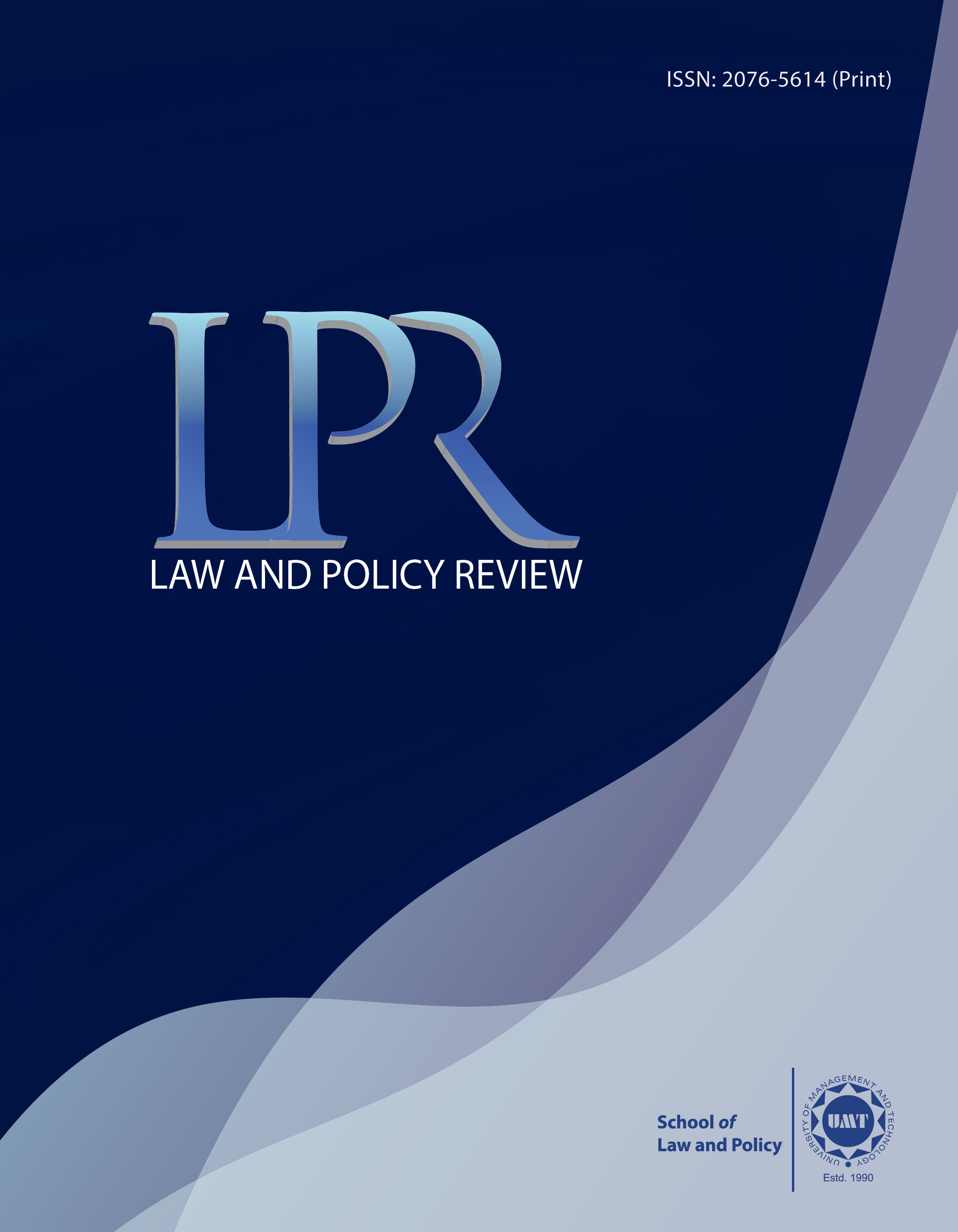Muslim Countries’ Participation, Challenges, and Development in the General Agreement on Tariffs and Trade (GATT) and the World Trade Organization (WTO)
Abstract
 Abstract Views: 24
Abstract Views: 24
Muslim countries are integrated into worldwide trading through membership in GATT and WTO. Many Muslim-majority countries are members of the General Agreement on Tariffs and Trade (GATT) and the World Trade Organization (WTO). Many Muslim countries are emerging nations and face challenges while participating in the global trade system. If a country does not comply with its WTO commitments, then other countries may take action through the WTO dispute settlement process. WTO is an international organization that facilitates international trade and helps to ensure that trade flows smoothly, predictably, and freely. This organization performs these tasks by promoting the adoption of open and fair trade policies, providing a forum for negotiations, and settling trade disputes between countries. Muslim countries, like other countries, may participate in WTO and are subject to its rules and agreements. Some Muslim-majority countries, such as Indonesia, Pakistan, and Turkey are founding members of WTO, while others joined at various points since its inception. Participation in WTO may bring a number of benefits to Muslim countries including increased access to global markets, the opportunity to shape global trade rules, and the ability to use WTO's dispute settlement mechanism to resolve trade disputes. GATT and WTO are global organizations that play a significant role in shaping the international trade policies. Muslim countries are integrated into worldwide trading through their membership in the GATT and WTO, however, many of these countries continue to face challenges while participating in the global trade system. The current research aims to examine the participation, challenges, and development of Muslim countries in the GATT and WTO system. It provides a brief overview of GATT and WTO along with their respective roles in facilitating international trade. It also highlights the benefits and challenges faced by Muslim countries while participating in these organizations. Furthermore, this study analyses the impact of WTO on the trade policies of Muslim countries and the implications of WTO accession for their economic development. To achieve these objectives, a review of existing literature and scholarly articles was conducted. It also draws on the case studies of Muslim countries, such as Pakistan, Bangladesh, and Afghanistan to illustrate the practical implications of participating in WTO. By providing an overview of the participation, challenges, and development of Muslim countries in the GATT and WTO system, this study seeks to contribute to a better understanding of the issues faced by these countries in the global trade system.
Downloads
References
Alavi, R. (2002). Trade protectionism under the WTO: The impact on Muslim countries. Journal of Economic Cooperation, 23(4), 1–32.
Benaddi, A., & Silva, P. (2022). The multilateral trade policy of the Arab league countries: An empirical investigation. The World Economy, 45(11), 3420–3450. https://doi.org/10.1111/twec.13283
Boulila, G., & Oueslati, A. (2016). A comparative study of the trade performances of OIC member countries. Journal of Economic Cooperation and Development, 37(3), 103–136.
Hudec, R. E. (2010). Developing countries in the GATT legal system. Cambridge University Press.
Koyuncu, C. (2019). The role of the World Trade Organization in regulating trade relations among its member countries. Journal of International Trade Law and Policy, 18(1), 19–37.
Macrory, P. F. J., Appleton, A. E., & Plummer, M. G. (Eds.). (2005). The World Trade Organization legal economic and political analysis. Springer.
Mahmud, T. (2017). Challenges of trade liberalization under the World Trade Organization (WTO) for developing countries. Journal of Business and Management, 19(3), 10–14.
Mirza, H., & Narlikar, A. (2018). Islamic perspectives on international trade: Review and critique of the literature. Journal of International Trade Law and Policy, 17(3), 97–110.
Nsour, M. F. (2011). International trade law and culture… is it “Culture” by the way? The case of international trade law and Islamic law. European Journal of Social Sciences, 19(4), 499–506.
Scott-Keltie, J., & Epstein, M. (Eds.). (2016). The statesman's year-book. Springer.
VanGrasstek, C. (2013). The history and future of the World Trade Organization. World Trade Organization. https://www.wto.org/english/res_e/booksp_e/historywto_e.pdf
World Trade Organization. (n.d.a). Members and observers. https://www.wto.org/english/thewto_e/whatis_e/tif_e/org6_e.htm
World Trade Organization. (n.d.b). Pakistan and the WTO. https://www.wto.org/english/thewto_e/countries_e/pakistan_e.htm#:~:text=Pakistan%20and%20the%20WTO&text=Pakistan%20has%20been%20a%20WTO,GATT%20since%2030%20July%201948.
World Trade Organization. (n.d.c). Understanding the WTO: Principles of the trading system. https://www.wto.org/english/thewto_e/whatis_e/tif_e/fact1_e.htm
World Trade Organization. (n.d.d). Let’s talk rules-based trade. https://www.wto.org/english/res_e/webcas_e/ltt_e/ltt10_e.htm#:~:text=What%20are%20the%20WTO%20rules,and%20to%20open%20services%20markets.
Copyright (c) 2022 Chaudhary Azhar Hussain Tarar, Bushra Abdul Majid Bhatti

This work is licensed under a Creative Commons Attribution 4.0 International License.
LPR follow an open-access publishing policy and full text of all published articles is available free, immediately upon publication of an issue. The journal’s contents are published and distributed under the terms of the Creative Commons Attribution 4.0 International (CC-BY 4.0) license. Thus, the work submitted to the journal implies that it is original, unpublished work of the authors (neither published previously nor accepted/under consideration for publication elsewhere). On acceptance of a manuscript for publication, a corresponding author on the behalf of all co-authors of the manuscript will sign and submit a completed the Copyright and Author Consent Form.





